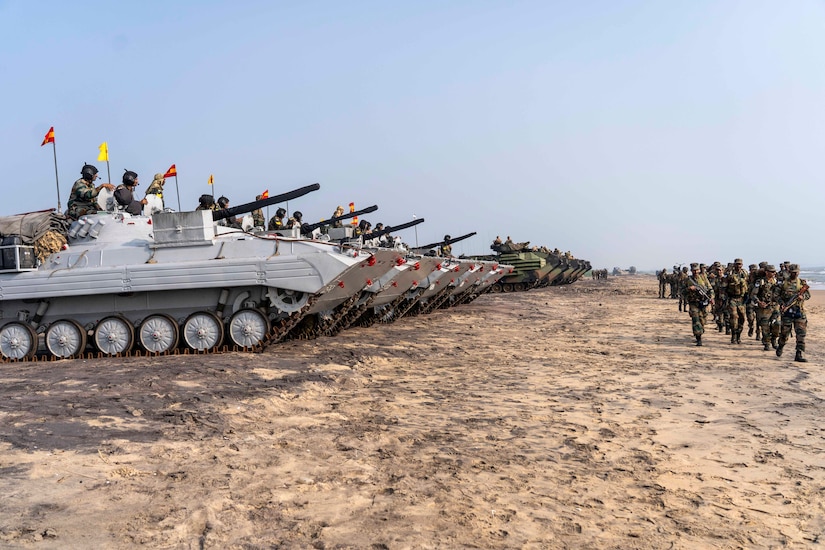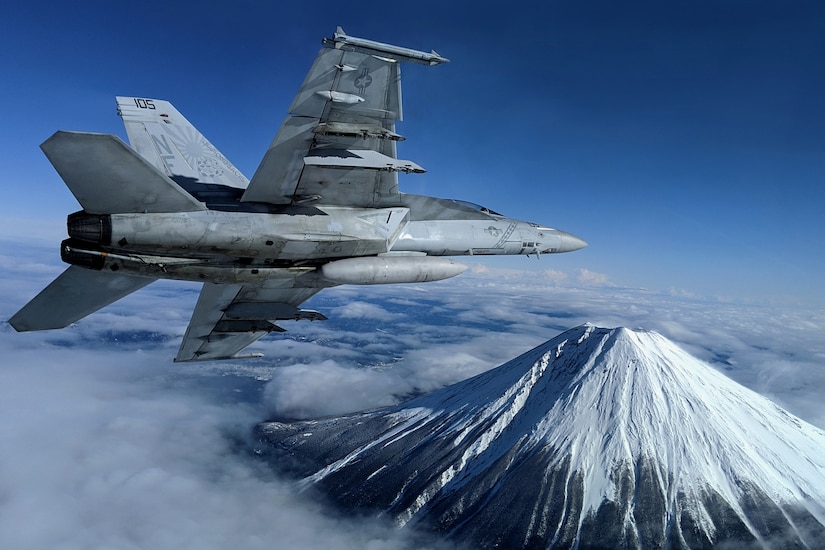Aug. 27, 2021 | , DOD News
During the Cold War, the U.S. faced one peer competitor, the Soviet Union. Today, Russia and China, both peer competitors, are seen as sometimes collaborating in opportunistic ways, the commander of U.S. Strategic Command said.

Navy Adm. Charles "Chas" A. Richard, commander, U.S. Strategic Command, spoke today at the Hudson Institute.
"China's strategic breakout means that they are now additive to what it takes to deter Russia," he said.
"We're in uncharted waters," he said, referring to the twin threat, "and that threat is growing rapidly.
"Both Russia and China have the ability to unilaterally at their own choosing, go to any level of violence, to go to any domain to go worldwide, with all instruments of national power," Richard said, noting that if they work in tandem, it is even worse.

By domain, Richard referred to threats in the space, cyber, air, ground and sea domains.
The admiral pointed to the path forward for the U.S.
"We need to reexamine any number of our basic operating concepts starting with our escalation control. I think we need to be far more humble about our ability to control escalation in a crisis than we currently do," he said.
"Every operational plan in the Department of Defense and every other capability that we have rests on [the] assumption that strategic deterrence is holding. If I can't get strategic deterrence, and in particular nuclear deterrence to hold, no other plan and no other capability in the department is going to work as designed," he said.

Stratcom is currently rewriting deterrence theory operationally, but this effort requires all of the combatant commands' broader focus efforts as well, he said.
"This is a good time to be doing a National Defense Strategy Review, to be doing a Nuclear Posture Review and Missile Defense Review," Richard said, applauding the timing of the revisions to those reviews.








No comments:
Post a Comment